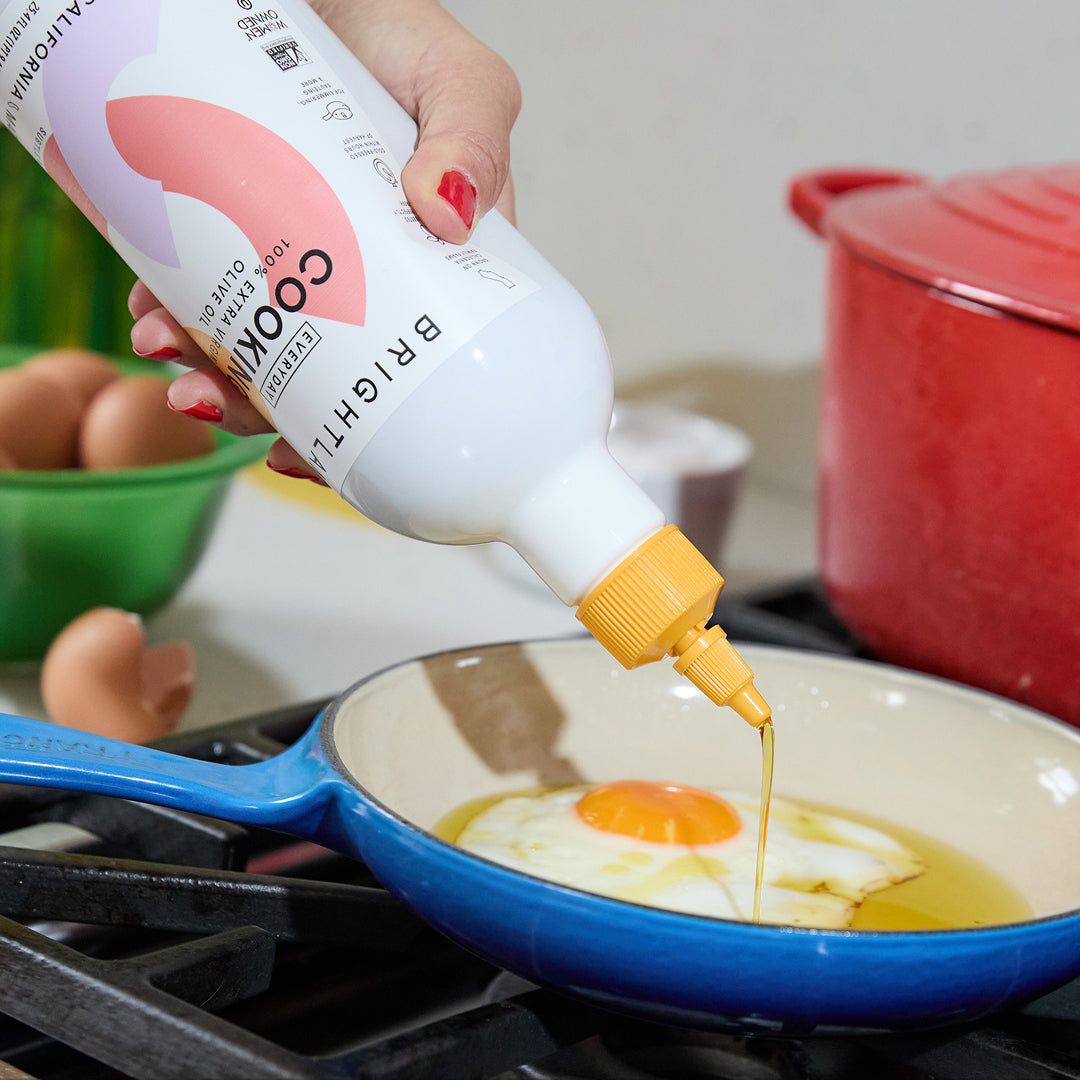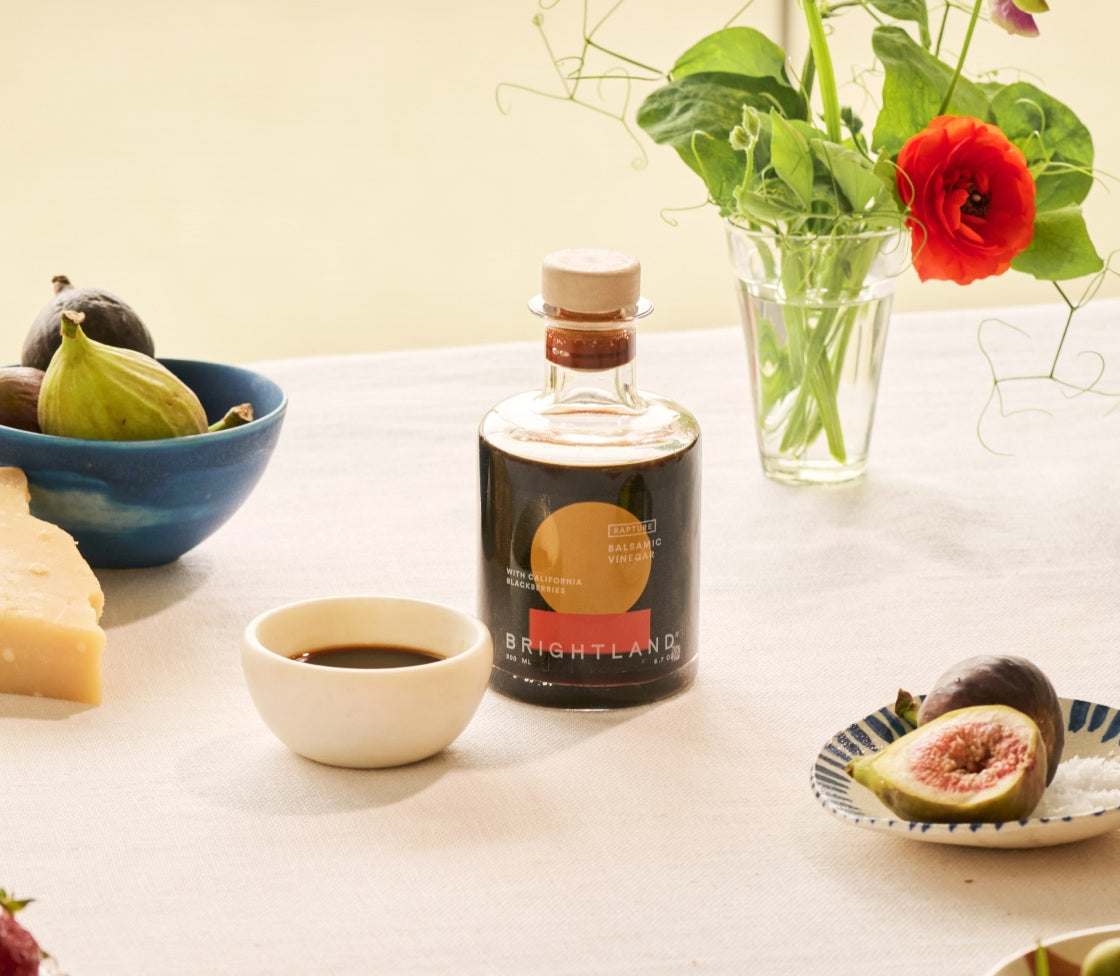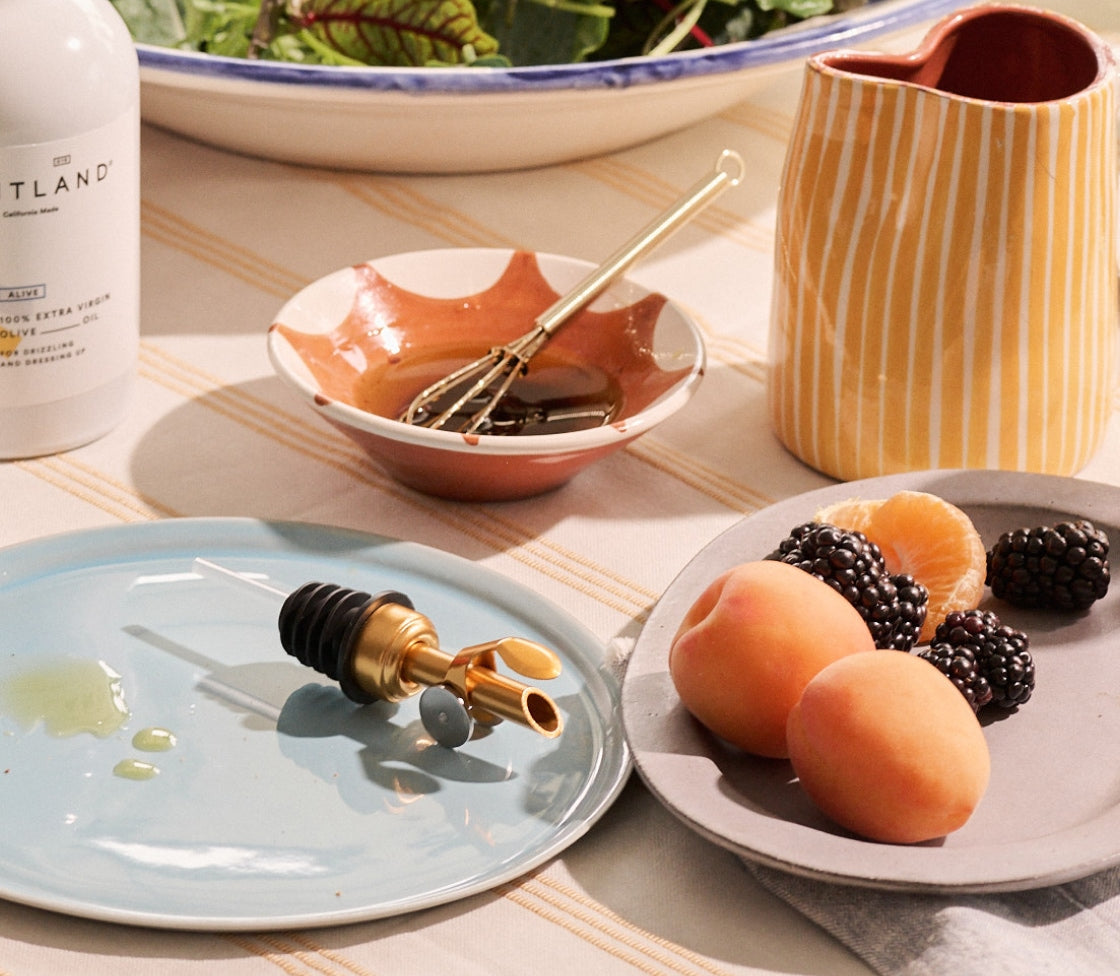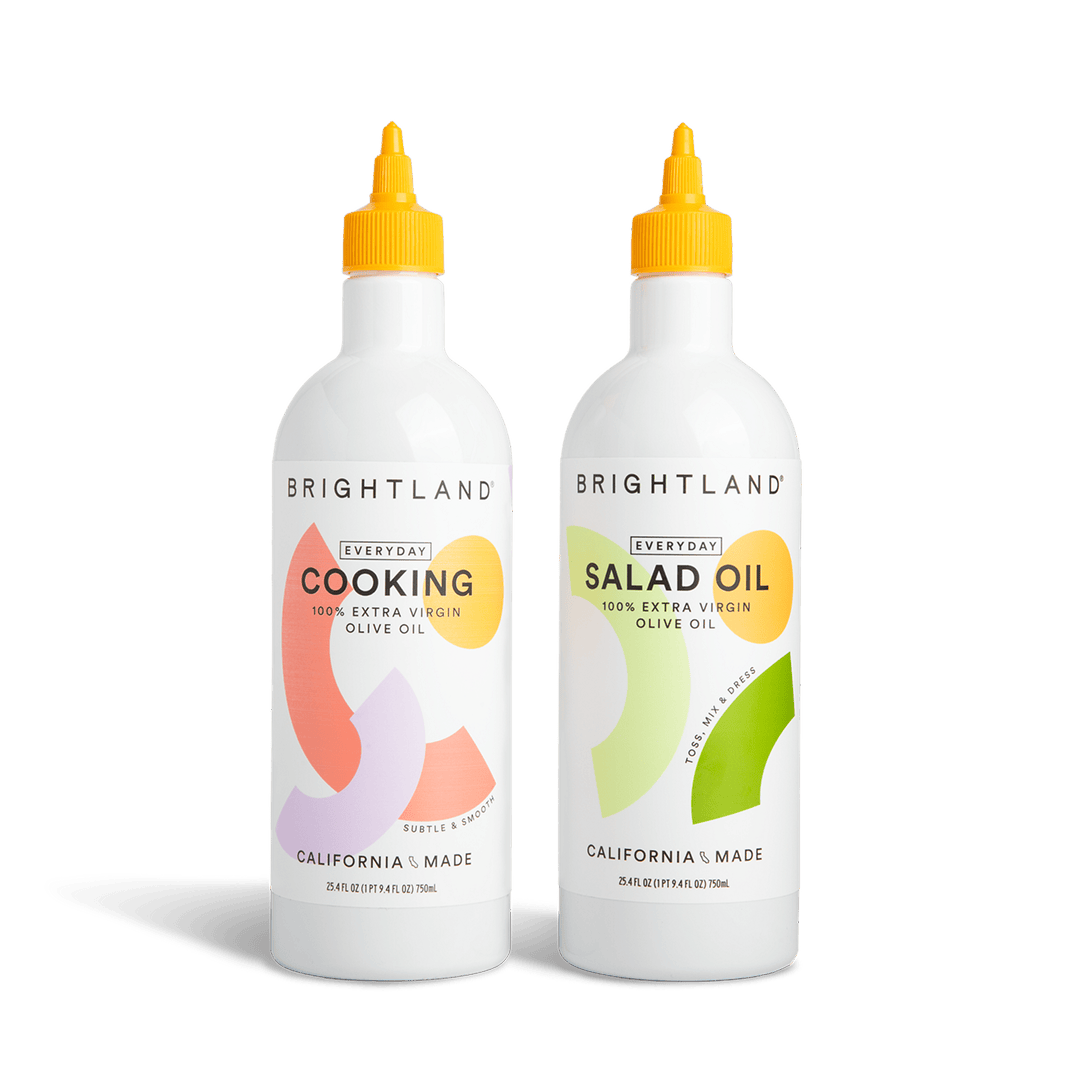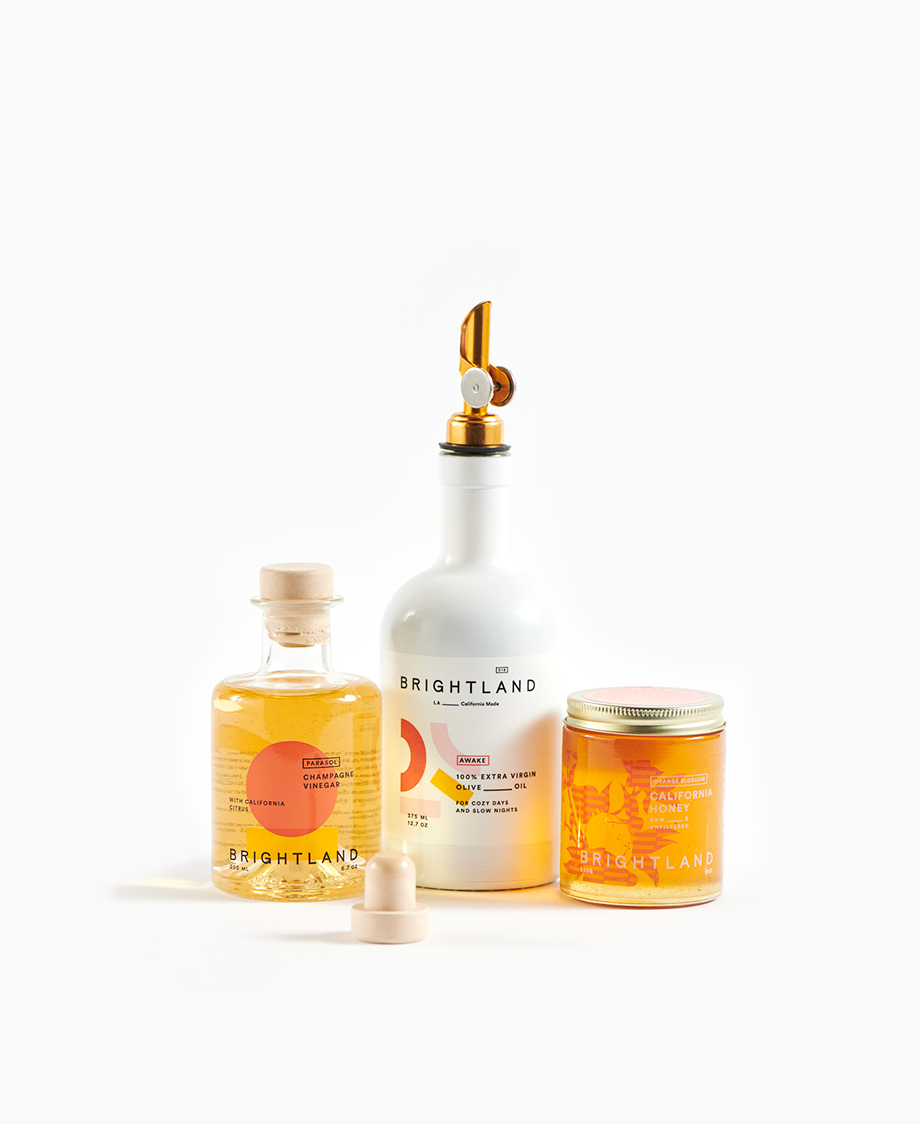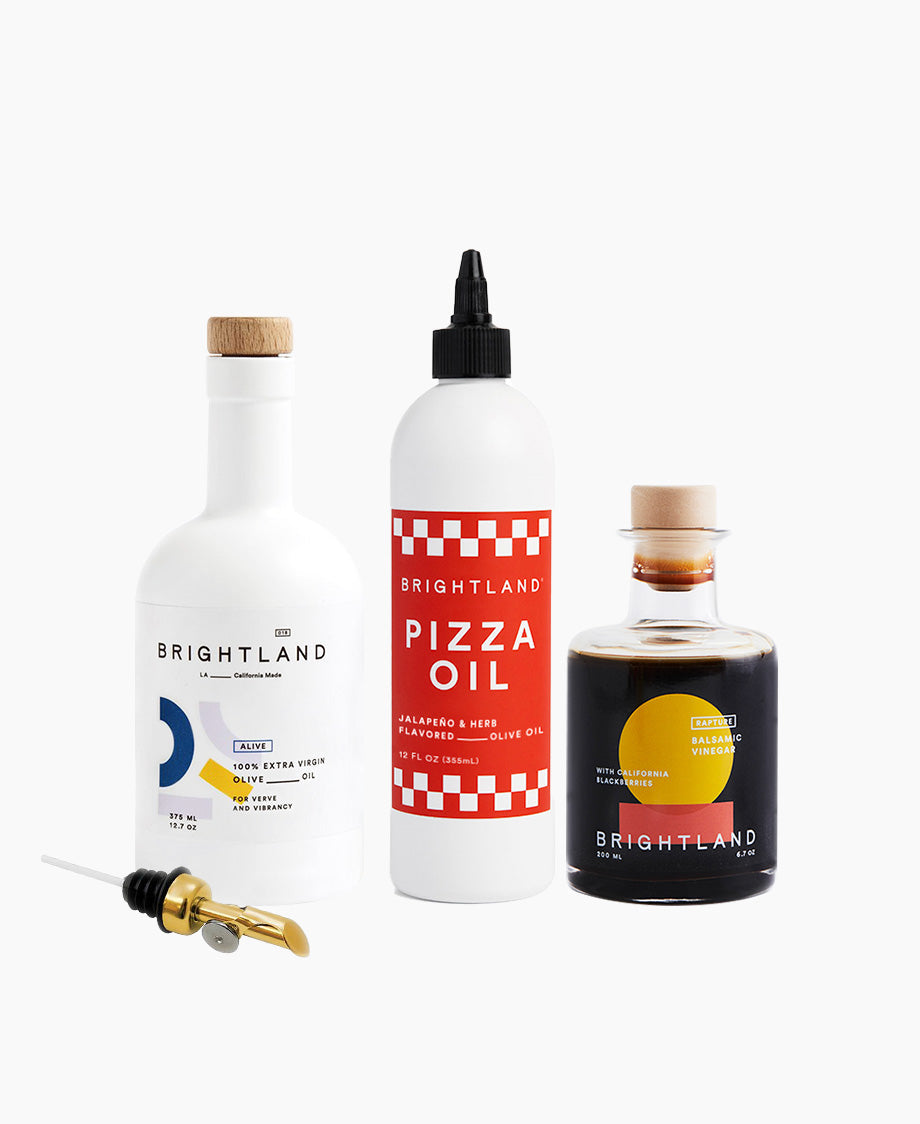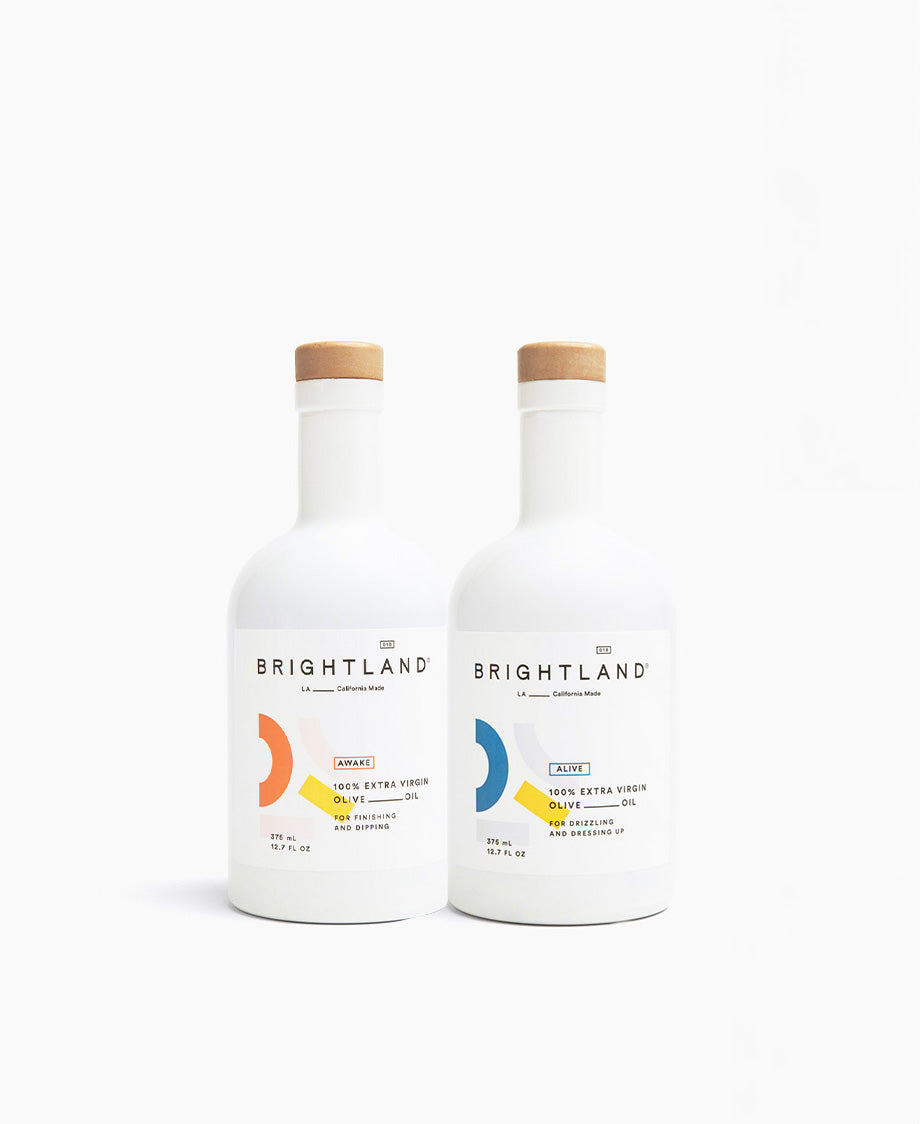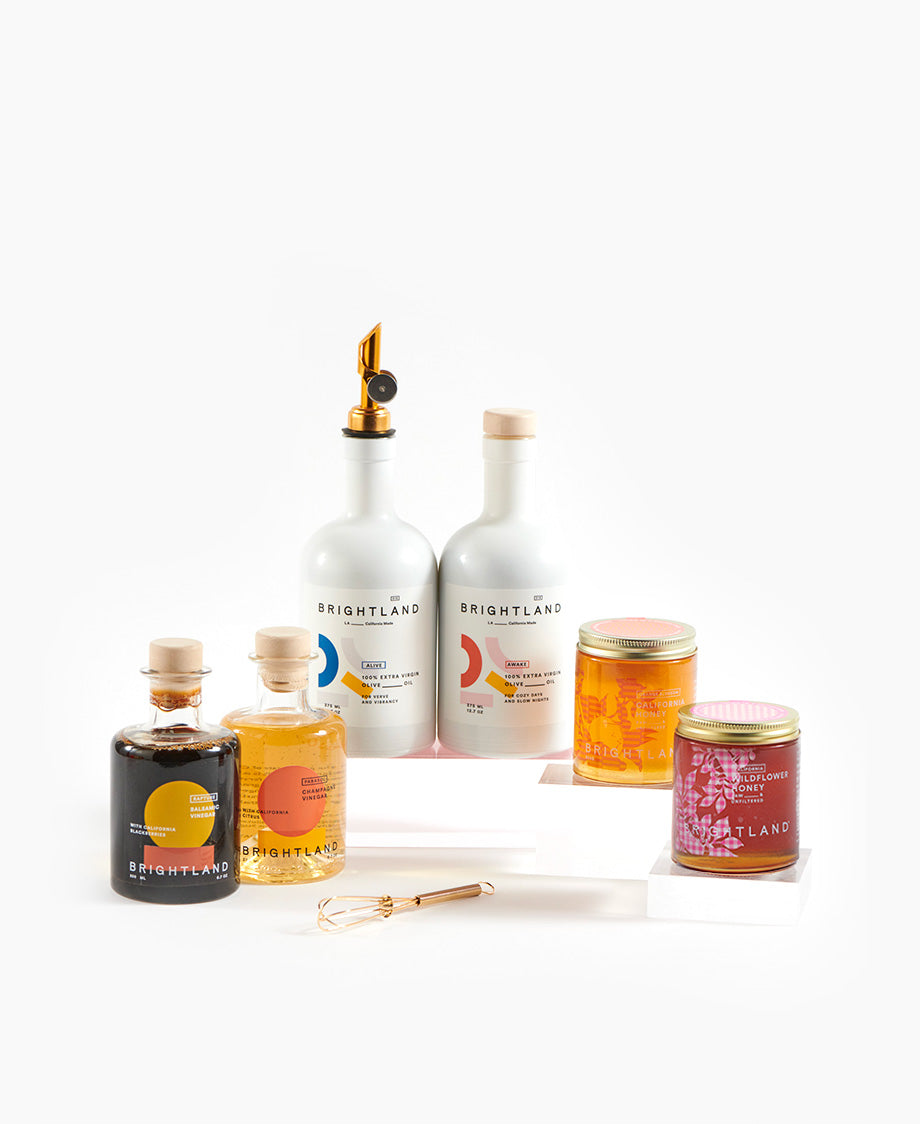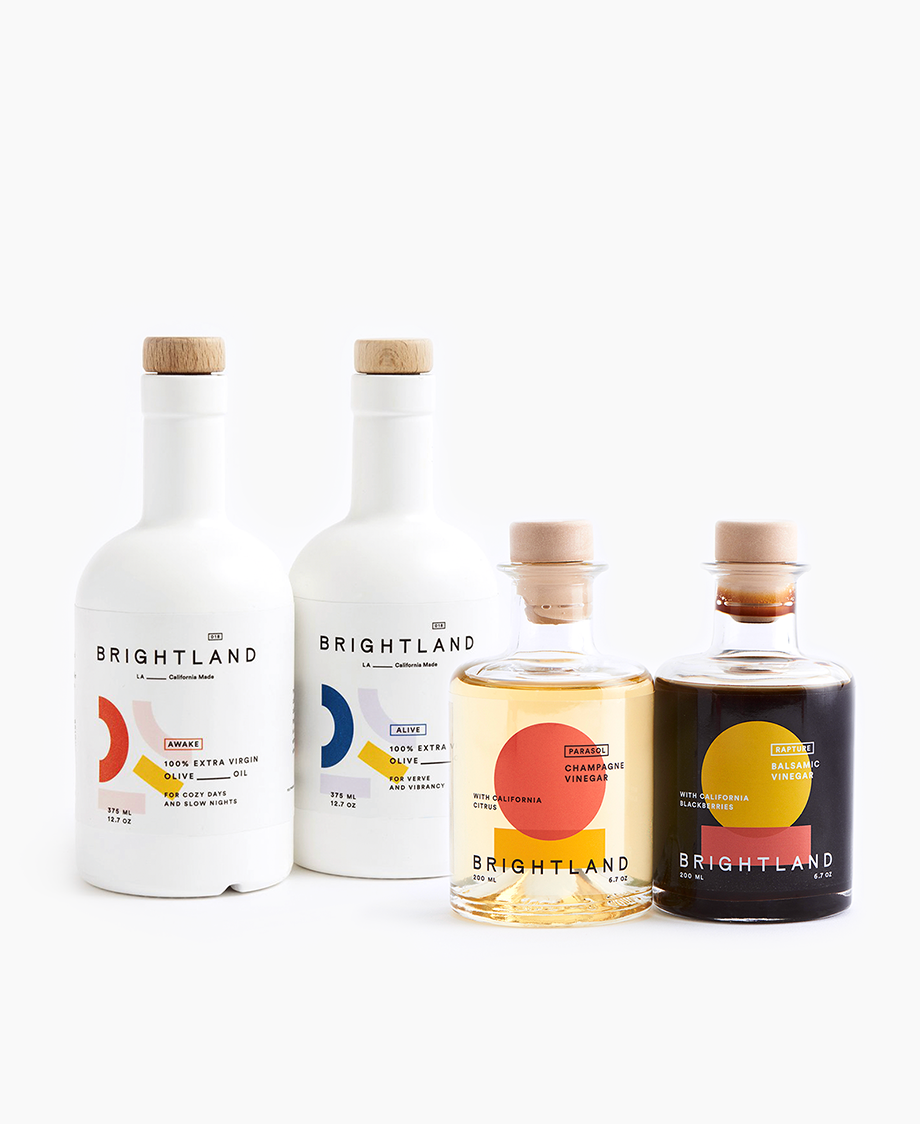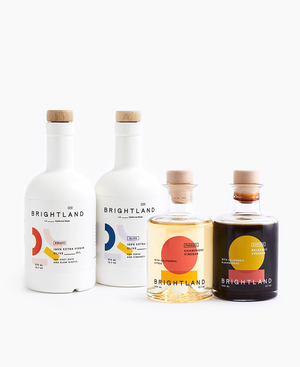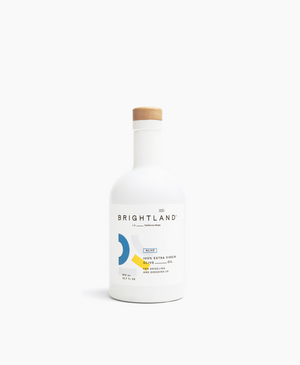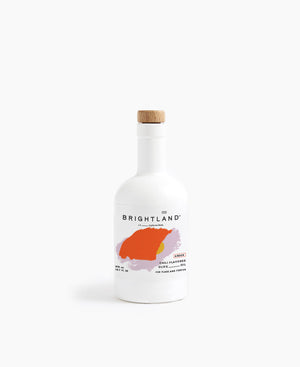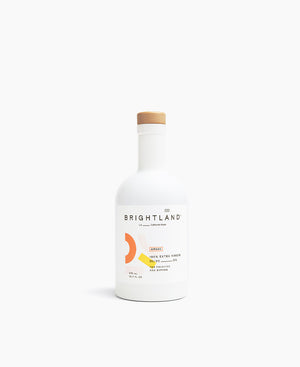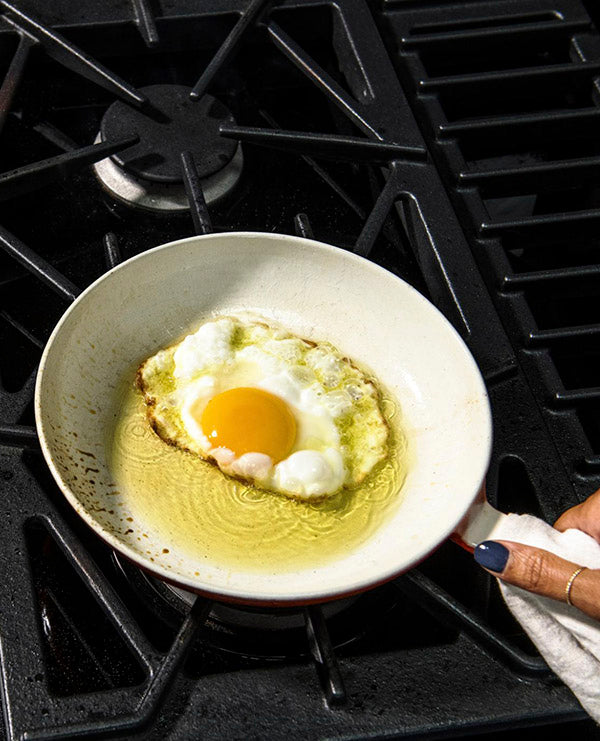[open type="rte"]
Corn oil has been a staple of the cooking oil aisle for years. While it has always been stocked alongside vegetable oils used for baking, recently, some people have been claiming that you can substitute it for extra virgin olive oil. Today, we are comparing corn oil vs. olive oil in three key categories: flavor, nutritional benefits and smoke point.
[close type="rte"] [open type="images" small="true"]

[close type="images"][open type="rte"]
Corn Oil vs. Olive Oil: Flavor
Corn oil and olive oil have very different tastes and smells, which makes them suitable for different types of cooking. The taste of olive oil varies a lot depending on variety, but, in general, it has a sharp, distinct taste that most people describe as grassy and/or peppery. You can even get flavored olive oils that have been infused with garlic, chili, lemon or basil for even more of a punch.
On the other hand, corn oil has a very neutral taste and smell that is not very noticeable, especially when mixed with other ingredients. The reason for this lack of flavor is that corn oil is almost exclusively extracted via the use of the chemical solvents, which end up destroying a lot of the flavorful compounds as a byproduct of the extraction process.
[close type="rte"][open type="rte"]
[close type="rte"][open type="rte"]
Corn Oil vs. Olive Oil: Nutritional Benefits
Corn oil and olive oil offer varying nutritional benefits when compared to one another. The nutritional benefits of olive oil are well known and well studied. Olive oil is rich in heart-healthy polyunsaturated fats and in omega-3 fatty acids, as well as a lower quantity of monounsaturated fats. Olive oil also contains other beneficial compounds such as antioxidants, vitamins and polyphenols, which add to the health benefits.
Corn also contains both polyunsaturated as well as monounsaturated fats. In addition, it also contains more omega-6 fatty acids vs. the omega-3 fatty acids in olive oil. However, it lacks the antioxidants and other beneficial compounds in olive oil. Corn oil is certainly a better choice than other neutral-tasting vegetable oils in the health department, but olive oil still has an edge when you compare their nutritional benefits directly.
[close type="rte"][open type="images" count="1"]

[close type="images"][open type="rte"]
Corn Oil vs. Olive Oil: Smoke Point
Corn oil and olive oil have slightly different smoke points. Fresh extra virgin olive oil has a smoke point of around 400 degrees Fahrenheit, but this can vary with age or refining processes. Meanwhile, the smoke point for corn oil can vary anywhere from 350 to 450 degrees Fahrenheit, depending on the brand. Thus, olive oil has a high enough smoke point for most home cooking scenarios, where corn oil may or may not suffice.
That being said, olive oil remains stable at higher temperatures over longer periods of time, resisting the oxidation process that breaks down compounds in the oil, which can result in free radicals. Since many cooking processes require the application of heat over long periods of time — as opposed to quickly frying something — olive oil is a great choice for these scenarios.
[close type="rte"][open type="rte"]
[close type="rte"][open type="images" count="1"]
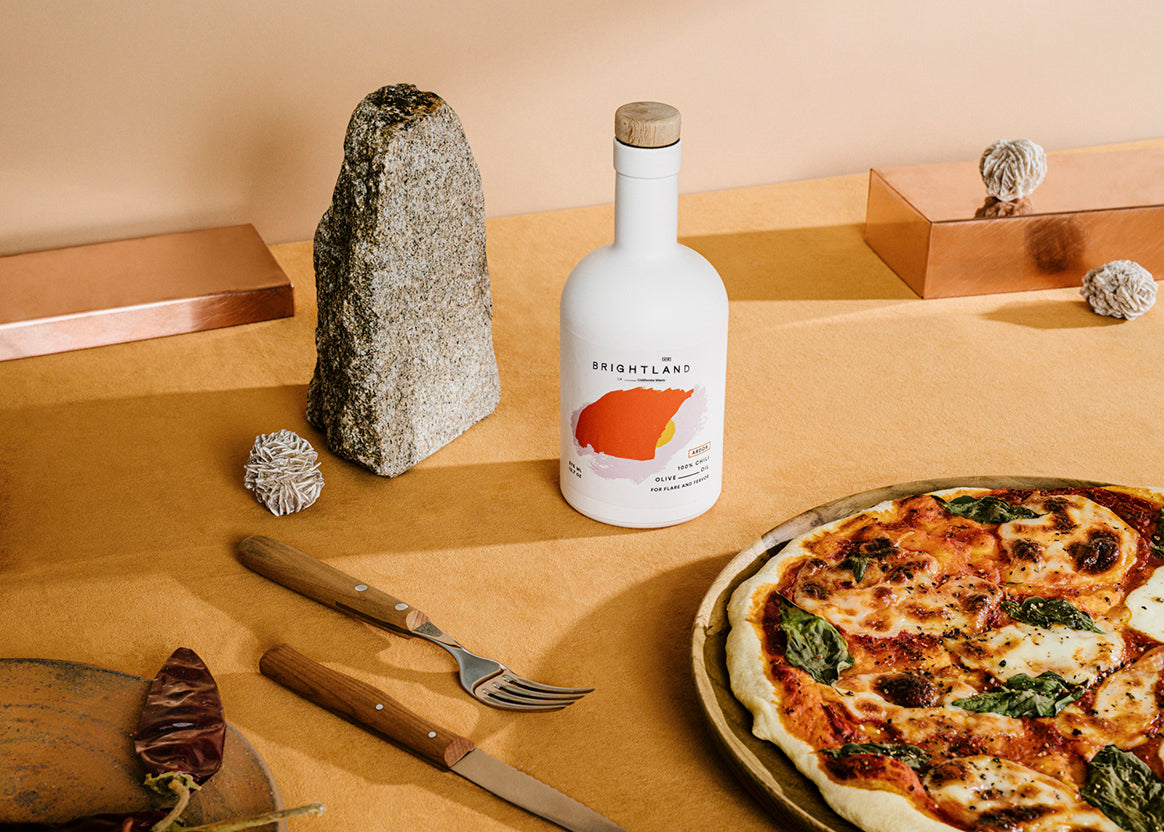
[close type="images"][open type="rte"]
Corn Oil vs. Olive Oil: Which Should You Choose?
Both corn oil and olive oil can have a place in your kitchen, depending on what you cook. We prefer the delicious flavors of olive oil for homemade dressings, roasted vegetables and dipping sauces.
Looking for a high quality olive oil? We offer many different varieties in our online store — from the classic extra virgin olive oil to chili infused olive oils.
[close type="rte"]

